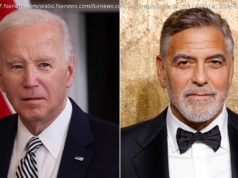Jackie Chan has been genially kicking ass for more than 50 years. “The Foreigner,” out Friday, is the latest film to land on the action star’s massive…
Jackie Chan has been genially kicking ass for more than 50 years.
“The Foreigner,” out Friday, is the latest film to land on the action star’s massive résume of more than 150 movies. Yet, decades on, the 63-year-old star is just as dangerous and formidable on-screen.
“Even for his age, he’s still really good as an action hero,” Dr. Kin-Yan Szeto, author of “ The Martial Arts Cinema of the Chinese Diaspora: Ang Lee, John Woo, and Jackie Chan in Hollywood,” tells The Post.
“Not a lot of action stars would be able to do things like him at this age. Because he’s been trained for a very long time, he still has those skills.”
From his early Hong Kong work, all the way to “The Foreigner,” Chan has proven himself a chameleon, easily adapting to location, genre and tone.
Today’s Jackie Chan is not the same as the one from the 1970s. In his newest film, he plays a vengeful father whose daughter is murdered by terrorists. Nary a smile is cracked — and the battles are brutal.
“His [fighting] style still has that comical element in it,” Szeto says. “But his persona has changed on-screen.”
Here, we look at how Chan’s takedowns have evolved over his storied career.
Before he made it big in Hollywood, Chan starred as a martial artist in this traditional Chinese kung fu film set during the Qing dynasty. Chan’s character learns the ways of a drunkard fighting master, leading to some delightfully wobbly movements in his skirmishes.
The fights here, agile and aggressive, prove Chan’s abilities as an athlete and a fledgling physical comedian.
“His early films, like ‘Drunken Master,’ are based on the kung fu genre, and that time period — the 1970s — was when Bruce Lee passed away,” says Szeto. “So a lot of people liked the continuation of that [style]. But Jackie Chan had a comical take on the genre, so there are a lot of fights based on physical combat,” Szeto adds, noting that projectile weapons hadn’t come into play yet.
Hello, NYC. Goodbye, kung fu. Gone for Chan are traditional Chinese fighting and aesthetics as he translates his signature moves to The Bronx — even though it was filmed in mountainous Vancouver, British Columbia — in this thriller, playing a cop who has bouts with thugs in mini-marts.
In the mid-’80s, Chan developed a new style called “wu da pian,” which incorporates dangerous stunts and extreme martial arts. “After I invented my style… everyone copied me,” Chan told Bright Lights. “I like that. It forces me to be more creative.”
The confrontations now had a street-fighting quality.
“That film made him succeed in breaking into the North American market. He came 10 years [earlier] to Hollywood but did not have that kind of success,” says Szeto. “I think that movie is kind of in between the East and West. It’s something American audiences can assess easily. They can understand the humor quickly — because of the fighting.”
Chan doesn’t get funnier than in 1998’s “Rush Hour,” a buddy-cop flick in which Chan plays a visiting Hong Kong detective opposite stand-up comic Chris Tucker as an LAPD officer. Fights scenes, filled with hilarious confusion from both actors, moved from LA’s backroom-gambling dens to government embassies. Some experts, however, have argued that buddy-cop films have dulled the sparkle of Chan’s fights.
“Over time his fights have looked diluted, which began with ‘Rush Hour’ and continued with most of his Hollywood hits,” writes martial-arts expert Craig D. Reid on JetLi.com . “Playing second fiddle comic to his Hollywood co-stars dampened his Clown Prince of kung fu comedy image.”
This drama, in which Chan plays a businessman whose daughter is killed in an act of terrorism, is a big leap for the actor. The fights are darker, and there are more guns than usual. Bruised, bloody and scarred, Chan’s combat on his quest for vengeance is scarier than it is fun.
“I think the reason there seems to be changes in his fighting style now is related to the fact that he has been doing action movies for a very long time and that he’s also an actor,” says Szeto. “He was trained in Chinese opera — so he’s not just someone who fights; he’s someone who acts.
“In this movie, he’s being cast against type,” she adds. “So he wants to show his talents as an actor. He wants to change his persona.”






